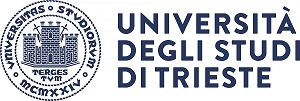We are pleased to announce the seminar:
FLUIDIC FORCE MICROSCOPY TO STUDY CELLULAR MECHANOSENSING
Massimo Vassalli
James Watt School of Engineering
University of Glasgow
ABSTRACT
Modern medicine has made astonishing progress leaning on genetic and biochemical research. Nevertheless, treatments are missing for uncountable conditions, indicating that key areas of human biology are still unknown. In addition to chemical signalling, mechanical perturbations are now recognized to influence cell and tissue function. New therapeutic approaches are expected to emerge in the next decades that target the physical basis of many diseases, including atherosclerosis, asthma, osteoporosis, heart failure, or cancer. Moreover, a clear mechanical footprint is recognisable in many age-related disabilities, like lower back pain and irritable bowel syndrome, where irregular responses to mechanical forces leads to over-activation of cells, sustaining long-term inflammation and fibrosis that consolidate pathology. Nevertheless, to properly leverage the fascinating promise of mechanomedicine, we need to fully understand how single cells respond to mechanical stimuli. In the Cellular Mechanobiology Lab (CML) of the Centre for the Cellular Microenvironment of the University of Glasgow we develop correlative approaches where atomic and fluidic force microscopy are combined with fluorescence confocal microscopy to apply controlled forces on single living cells and observe the response in real time. During the seminar a novel method to study cellular mechanosensing will be presented, based on the use of Fluidic Force Microscopy. This approach is particularly suitable to study the membrane microenvironment, observing how the local tension propagates and impacts on mechanosensitive ion channels.
WHEN: Wednesday 13rd March 2024, 17:00-18:00
WHERE: Room A (ground floor), Building F, Main Campus, University of Trieste
Last updated on: 03/12/2024 - 11:46

